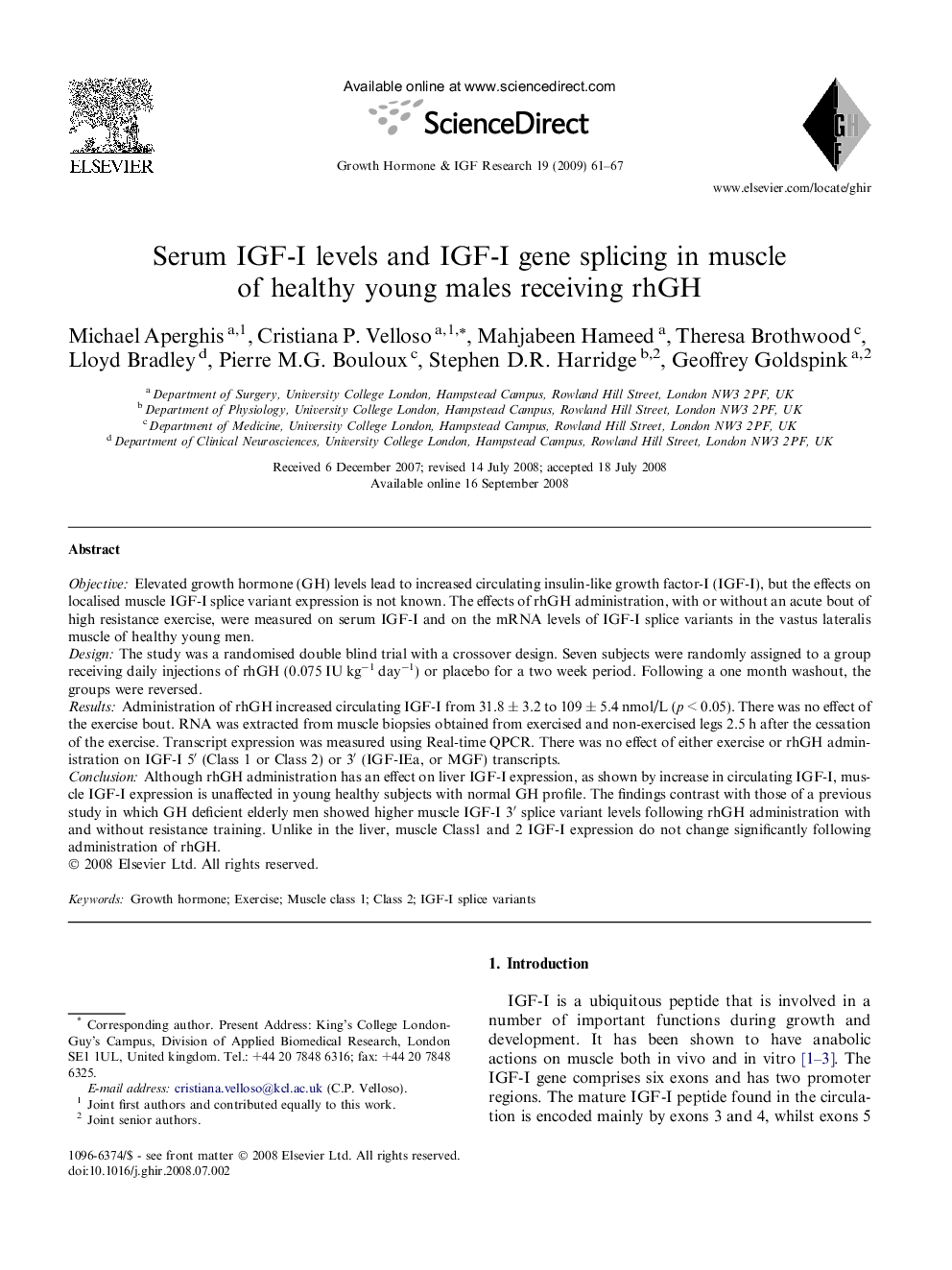| Article ID | Journal | Published Year | Pages | File Type |
|---|---|---|---|---|
| 2803126 | Growth Hormone & IGF Research | 2009 | 7 Pages |
ObjectiveElevated growth hormone (GH) levels lead to increased circulating insulin-like growth factor-I (IGF-I), but the effects on localised muscle IGF-I splice variant expression is not known. The effects of rhGH administration, with or without an acute bout of high resistance exercise, were measured on serum IGF-I and on the mRNA levels of IGF-I splice variants in the vastus lateralis muscle of healthy young men.DesignThe study was a randomised double blind trial with a crossover design. Seven subjects were randomly assigned to a group receiving daily injections of rhGH (0.075 IU kg−1 day−1) or placebo for a two week period. Following a one month washout, the groups were reversed.ResultsAdministration of rhGH increased circulating IGF-I from 31.8 ± 3.2 to 109 ± 5.4 nmol/L (p < 0.05). There was no effect of the exercise bout. RNA was extracted from muscle biopsies obtained from exercised and non-exercised legs 2.5 h after the cessation of the exercise. Transcript expression was measured using Real-time QPCR. There was no effect of either exercise or rhGH administration on IGF-I 5′ (Class 1 or Class 2) or 3′ (IGF-IEa, or MGF) transcripts.ConclusionAlthough rhGH administration has an effect on liver IGF-I expression, as shown by increase in circulating IGF-I, muscle IGF-I expression is unaffected in young healthy subjects with normal GH profile. The findings contrast with those of a previous study in which GH deficient elderly men showed higher muscle IGF-I 3′ splice variant levels following rhGH administration with and without resistance training. Unlike in the liver, muscle Class1 and 2 IGF-I expression do not change significantly following administration of rhGH.
